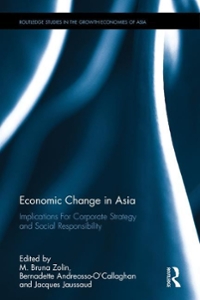Question
1.The CPI was 117.6 in one year and 121.3 the following year. Approximately how much did prices rise between the two years? a.3.7 percent b.3.15
1.The CPI was 117.6 in one year and 121.3 the following year. Approximately how much did prices rise between the two years?
a.3.7 percent
b.3.15 percent
c.0.03 percent
d.1.03 percent
2.One measure of the inflation rate is the
a.sum of the CPIs of adjacent years.
b. percentage change in the CPI of adjacent years.
c.percentage change in the Real GDP of adjacent years.
d. GDP minus the Real GDP in a year.
3.Inflation initiated by increases in wages or other resource prices is labelled:
a.demand-pull inflation.
b.demand-push inflation.
c.cost-push inflation.
d.cost-pull inflation.
4.Who is hurt by inflation?
a.flexible-income earners
b.property owners
c.savers
d.debtors (borrowers)
5.Suppose that 1982 is the base year for the Consumer Price Index (CPI) and in 1998 the CPI is 250. What does this "250" mean?
a.What cost RM100 in 1982 will on average cost 250 times as much in 1998.
b.What cost RM100 in 1982 will on average cost RM250 more in 1998.
c.What cost RM100 in 1982 will on average cost 100/250 (or 0.4) times as much in 1998 (that is, it will cost RM40 in 1998).
d.What cost RM100 in 1982 will on average cost RM150 more in 1998.
6.What does annual economic growth refer to?
a.annual increases in GDP
b.annual increases in consumption spending
c.annual increases in investment spending
d.annual increases in Real GDP
7.Suppose the civilian noninstitutional population equals 100,000; there are 62,600 employed persons and 8,100 unemployed persons. How many people are not in the labour force?
a. 8,100
b. 37,400
c. 54,500
d. 29,300
8.A person is unemployed if he
a. is a member of the civilian labour force, out of work, and actively seeking work.
b.is 15 years old and seeking his first job.
c.is out of work, available for work, but not actively seeking work.
d.all of the above
9."Full employment" is said to exist when the unemployment rate equals
a.zero.
b.the cyclical unemployment rate.
c.the structural unemployment rate.
d.the natural unemployment rate.
10.A business cycle refers to the
a.recurrent swings (up and down) in Real GDP.
b.period when Real GDP grows at unusually high rates.
c.continued expansion in Real GDP.
d.continued decline in Real GDP.
11.Which of the following is NOT an indicator of economic growth?
a.Gross domestic product (GDP)
b.Net domestic product (NDP)
c.Gross national product (GNP)
d.Inflation rate
12.If the available resources are fully utilised, the combinations of output that the country can produce lie _________ its PPF.
a.below
b.on
c.above
d.None of the above
13.To achieve economic growth in the long run, expansion of capacity is crucial.What is/are the determinant(s) for the expansion of capacity?
a.Increases of production resources
b.Advances in technology
c.Increases of employment rate
d.a and b
14.Economic growth causes a country's PPF to
a.shift outward
b.shift inward
c.remain unchanged
d.change its shape
15.Which of the following is NOT the endogenous factor of production input?
a.External economies of scale
b.Human capital
c.Labour
d.Capital
Step by Step Solution
There are 3 Steps involved in it
Step: 1

Get Instant Access to Expert-Tailored Solutions
See step-by-step solutions with expert insights and AI powered tools for academic success
Step: 2

Step: 3

Ace Your Homework with AI
Get the answers you need in no time with our AI-driven, step-by-step assistance
Get Started


